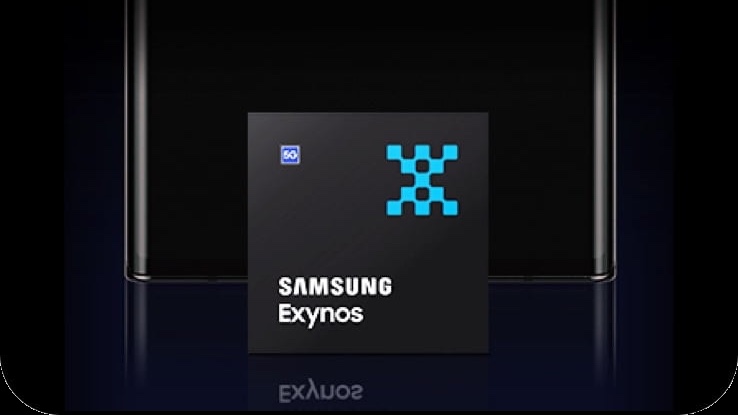Leaked Exynos 2400 benchmarks tease strong Samsung Galaxy S24 performance
And the chipset allegedly outperforms Apple's A16 Bionic, too

The Samsung Galaxy S24 could be in for quite a performance boost next year, at least if some models of the flagship phone wind up using Samsung's own Exynos 2400 chips. Benchmarks for Samsung's in-development silicon have leaked out, and they feature some eye-popping numbers.
Leaker @OreXDA posted the alleged Geekbench 5 results for the Exynos 2400 on Twitter, and they show big gains over the numbers for current Android smartphones. According to the leak, the Exynos 2400 posted a high score of 1,711 on Geekbench's single-core test and 6,967 on the multicore test. Even the average results were impressive — 1,530 for single-core and 6,201 for multicore.
| Row 0 - Cell 0 | Single core | Multi-core |
| Exynos 2400 (Galaxy S24) | 1,530 | 6,210 |
| Snapdragon 8 Gen 2 (Galaxy S23) | 1,578 | 5,081 |
| iPhone 14 Pro (A16 Bionic) | 1,882 | 5,333 |
To put those numbers in context, let's compare them to our Galaxy S23 Ultra benchmarks, since that phone runs on the Snapdragon 8 Gen 2 for Galaxy silicon. That phone produced a 1,578 average on the single-core test of Geekbench 5 and 5,081 on the multicore test.
So in other words, the single-core results on Geekbench 5 look fairly even between the Exynos 2400 and the Snapdragon 8 Gen 2, currently the most powerful chipset for Android smartphones. But the average score for the Exynos 2400 improves upon the Snadragon's mark by 22%. That's a fairly substantial gain that even outmuscles the 5,333 multicore average turned in by the A16 Bionic-powered iPhone 14 Pro Max. However, the latest iPhone had a higher single-core score.
Phone Arena, which spotted the tweet on Exynos benchmark results, reports that the Exynos 2400 will be built on an enhanced 4nm process. The chipset is slated to have a high-performance Cortex-X4 core CPU, five performance cores (with two of those running a higher clock speed) and four efficiency cores.
What's ahead for Exynos
High Score :ST : 1711MT : 6967 https://t.co/RMm81iMSRcApril 23, 2023
Earlier reports have claimed Samsung may turn to the Exynos 2400 in some of its Galaxy S24 models next year. If so, that would be a return to form for Samsung, which had previously used Qualcomm's Snapdragon silicon in some of its Galaxy S phones — usually the ones shipping to the U.S. — while having its Exynos chips power the rest. For the Galaxy S23 released earlier this year, Samsung went with the Snapdragon 8 Gen 2 exclusively.
That turned out to be a wise move for Samsung, given the gains to both performance and power efficiency the latest Snapdragon chipset brought to the S23, boosting models like the S23 Ultra to the top of the best phones rankings. But it would probably be most cost-effective for Samsung to use some of its own silicon for its devices.
Get instant access to breaking news, the hottest reviews, great deals and helpful tips.
That's proved problematic in the past, as previous Exynos chips have rarely matched the performance turned in by the comparable Snapdragon silicon. (Revisit our Snapdragon 8 Gen 1 vs Exynos 2200 comparison using a Galaxy S22 Plus to see what we're talking about.) You don't want to put too much weight behind one tweet about possible benchmark results, but it seems that the Exynos 2400 is looking to upend that reputation.
Of course, the chipset we'll want to compare the Exynos 2400 against isn't Qualcomm's current silicon but the Snapdragon 8 Gen 3, which isn't likely to appear until the end of the year. That's the rival chip that will probably end up competing for space inside the Galaxy S24, so the sooner we find out how those rival chipsets compare, the better.
More from Tom's Guide
- This Galaxy S23 setting can make your phone run cooler and save battery life
- Forget the Galaxy S23 FE — the Galaxy A54 is the low-cost phone to buy
- Galaxy S24 Ultra could beat iPhone 15 Pro Max with this big camera upgrade
Philip Michaels is a Managing Editor at Tom's Guide. He's been covering personal technology since 1999 and was in the building when Steve Jobs showed off the iPhone for the first time. He's been evaluating smartphones since that first iPhone debuted in 2007, and he's been following phone carriers and smartphone plans since 2015. He has strong opinions about Apple, the Oakland Athletics, old movies and proper butchery techniques. Follow him at @PhilipMichaels.
 Club Benefits
Club Benefits






